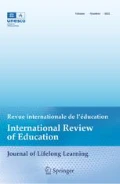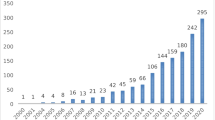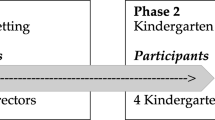Abstract
This paper undertakes a comparative review of the development and implementation of media education in four Asian societies. The comparison focuses on the following issues: the general pedagogical transition from inoculation to empowerment; the roles of government policy and educational reform in facilitating the development of media education; and the strength of partnerships between educationists, local media and religious organizations. Specific topics such as contextual adaptation, the impact of technology, and the need for collaborative efforts are also discussed.
Résumé
ÉDUCATION AUX MÉDIAS À TRAVERS QUATRE SOCIÉTÉS ASIATIQUES: PROBLÈMES ET THÈMES – Cet article entreprend un examen comparatif du dÉveloppement et de la mise en œuvre de l’Éducation aux mÉdias dans quatre sociÉtÉs asiatiques. La comparaison se concentre sur les problÈmes suivants: la transition pÉdagogique gÉnÉrale de «l’inoculation» À l’autonomisation ; les rôles de la politique gouvernementale et de la rÉforme de l’enseignement pour faciliter le dÉveloppement de l’Éducation aux mÉdias; et la force des partenariats entre les Éducateurs, les mÉdias locaux et les organisations religieuses. Des sujets spÉcifiques tels que l’adaptation contextuelle, l’impact de la technologie et le besoin d’efforts de collaboration font Également l’objet d’une discussion.
Zusammenfassung
MEDIENPÄDAGOGIK IN VIER ASIATISCHEN GESELLSCHAFTEN: THEMEN UND FRAGESTELLUNGEN – Dieser Artikel bietet einen vergleichenden Überblick Über die Entwicklung und DurchfÜhrung von Maßnahmen zur Medienausbildung in vier asiatischen Gesellschaften. Folgende Themen werden vergleichend behandelt: der allgemeine Übergang in Schulungskonzepten von der kritisch-passiven zur aktiven Medienkompetenz; die Rolle staatlicher Richtlinien und Bildungsreformen bei der Neuregelung medienpÄdagogischer Entwicklungen; sowie die␣StabilitÄt von Partnerschaften zwischen Bildungsbeauftragten, lokalen Medien und religiösen Organisationen. Des weiteren werden spezielle Themen diskutiert wie Kontextadaptation, Technologiefolgen und die Notwendigkeit verstÄrkter Zusammenarbeit.
Resumen
EDUCACIÓN EN MEDIOS EN CUATRO SOCIEDADES ASIÁTICAS: ASUNTOS Y TEMAS: – Este trabajo contiene una visiÓn general y una comparaciÓn del desarrollo y la implementaciÓn de la educaciÓn en medios, observados en cuatro países asiÁticos. La comparaciÓn se centra en los siguientes asuntos: la transiciÓn pedagÓgica general desde la inoculaciÓn hasta el empoderamiento, los papeles que juegan la política de gobierno y la reforma educativa en el desarrollo de la educaciÓn en␣medios, y la intensidad de las cooperaciones entre educadores, medios locales y organizaciones religiosas. También describe aspectos específicos, tales como la adaptaciÓn contextual, el impacto de las tecnologías y la necesidad de que se realicen esfuerzos que promuevan estos objetivos.

Similar content being viewed by others
References
Ahn J. I., G. R. Jeon. 1999. An Understanding of Media Education. Seoul: Han-Narae
Austin Erica Weintraub, Kristine Kay Johnson. 1997. Effects of General and Alcohol-Specific Media Literacy Training on Children’s Decision Making About Alcohol. Journal of Health Communication 2(1): 17–42
Broadcasting Ethics and Program Improvement Organization. 2005. Broadcasters Council of Youth Programmes. http://www.bpo.gr.jp/youth/index.html, accessed 11 August, 2005
Buckingham, David. 1993. Children Talking Television: The Making of Television Literacy. London: Falmer Press
Buckingham, David——. 2002. Media Education, A Global Strategy For Development: A Policy Paper Prepared for UNESCO. http://portal.unesco.org/ci/en/ev.php-URL_ID=5681&URL_DO=DO_TOPIC&URL_SECTION=201.html, accessed December 8, 2007
Buckingham, David——. 2003. Media Education: Literacy, Learning and Contemporary Culture. Cambridge: Polity Press in association with Blackwell Pub
Buckingham David, Jenny Grahame, Julian Sefton-Green. 1995. Making Media: Practical Production in Media Education. London: English and Media Centre
Cheung, Chi-Kim. 2005. The Relevance of Media Education in Primary Schools in Hong Kong in the Age of New Media – A Case Study. Educational Studies 31(4): 361–374
Cheung, Chi-Kim. 2006. Media Education as a Vehicle for Teaching Religion – A Hong Kong Case. Religious Education 101(4): 504–515
Cho, Han Haejoang, et al. 2002. Why, Now, Youth? How to Set up the Haja Centre. Seoul: Another Culture
Cohen, Stanley. 2002. Folk Devils and Moral Panics: Creation of Mods and Rockers. New York: Routledge
Commonwealth Magazine. 2000. (in Chinese) Cover Story. The Destructive and Disruptive Media
Curriculum Development Council. 1999. A Holistic Review of Hong Kong School Curriculum: Proposed Reforms. Hong Kong: Government Printer
Education, Manpower Branch. 2005. The New Academic Structure for Senior Secondary Education and Higher Education – Action Plan for Investing in the Future of Hong Kong. Hong Kong: Government Printer
Eiermann P. N. 1997. A Teacher’s Postmodern Guide to Ethics in the Video Production Laboratory. Journal of Research on Computing in Education 29(3): 215–225
Frechette, Julie D. 2002. Developing Media Literacy in Cyberspace: Pedagogy and Critical Learning for the Twenty First-Century Classroom. Westport, Conn: Praeger
Henry Miriam, John Knight, Robert Lingard, Sandra Taylor. 1988. Understanding Schooling: An Introductory Sociology of Australian Education. London: Routledge
Hobbs, Renee. 1998. The seven great debates in the media literacy movement. Journal of Communication 48(1), 16–32
Hobbs, Renee. 2004. A Review of School-Based Initiatives in Media Literacy Education. American Behavioural Scientist 48(1): 42–59
Japan Newspaper Foundation for Education and Culture. 2005. Newspaper in Education (in Japanese). http://www.pressnet.or.jp/nie/nie.htm, accessed June 28, 2005
Jeong, H. S. 2001. Theory, Practice and ‹Empowerment’ in Media Education: A Case Study of Critical Pedagogy. Unpublished PhD dissertation. UK: London University
Jo, Dongwon. 2004. Re-considering Active Audiences South Korean Experiences in Strengthening ‹Media Democracy”. Paper presented at Asia Pacific Forum on Active Audiences. Ritsumeikan University, Kyoto, June 25–27, 2004
Kim, T. H. 2003. Media Education Project Team ‹Hemo’. Seoul: Mabius
Korea Network Information Center. 2003. Korea internet statistics yearbook. Seoul: Young-jin Publishing
Lee, Alice. 1997. Legitimating Media Education: From Social Movement to the Formation of a New Social Curriculum. Unpublished doctoral thesis. Canada: University of British Columbia
Lee, Gee-Young. 2003. A Study of Media Education as an Independent Subject: Based on Discrete Activity of 5th grade Elementary Students. Unpublished MA dissertation, Seoul: Sogang University
Lee, Alice, and Eileen Mok. 2003. Cultivating Critical Young Minds in Post-Colonial Hong Kong: Case Studies of Media Education. Paper Presented at the 53rd Annual Conference of the International Communication Association. San Diego, USA, May 26
Lin, T. B. 2006. Media, Consumerism, Children and Educational Policy: A Case Study of Taiwan’s Media Education Policy. Paper Presented at the 2nd International Conference on Pluridisciplinary Perspectives on Child and Teen Consumption. Copenhagen, Denmark: The Copenhagen Business School
Masterman, Len. 1985. Teaching the Media. London: Routledge
Masterman, Len. 1998. The Media Education Revolution. In: A. Hart (eds), Teaching the Media: International Perspectives, Mahwah, NJ: Lawrence Erlbaum Associates, pp vii–xiii
Ministry of Education. 1999. The 7th National Curriculum. Seoul: Daehan Textbook Publisher
Ministry of Education, Culture, Sports, Science and Technology. 1998a. New Educational Guidelines for Elementary Schools (in Japanese). http://www.mext.go.jp/b_menu/shuppan/sonota/990301/03122601.htm, accessed July 10, 2005
MinistryofEducation,Culture,Sports,ScienceandTechnology——. 1998b. New Educational Guidelines for Junior High Schools (in Japanese). http://www.mext.go.jp/b_menu/shuppan/sonota/990301/03122602.htm, accessed July 10, 2005.
MinistryofEducation,Culture,Sports,ScienceandTechnology——. 1999. New Educational Guidelines for High Schools (in Japanese). http://www.mext.go.jp/b_menu/shuppan/sonota/990301/03122603.htm, accessed July 14, 2005
MinistryofEducation,Culture,Sports,ScienceandTechnology——. 2002. New Establishment of Period for Integrated Study (in Japanese). http://www.mext.go.jp/a_menu/shotou/sougou/020501.htm, accessed December 11, 2005
Ministry of Internal Affairs and Communications. 2000. Media Literacy: Ability of Young People to Function in the Media Society: Report of the Study Group on Young People and Media Literacy in the Field of Broadcasting. http://www.soumu.go.jp/joho_tsusin/eng/Releases/Broadcasting/news000623_1.html, accessed December 11, 2005
Ministry of Post and Telecommunications. 2000. Info-Communications in Japan (in Japanese). http://www.soumu.go.jp/joho_tsusin/eng/Resources/WhitePaper/WP2000/2000-index.hm, accessed December 12, 2005
Ministry of Public Management, Home Affairs, Posts and Telecommunications. 2002. (in Japanese) Major Aspects of Japan’s Broadcasting Policy. http://www.soumu.go.jp/joho_tsusin/eng/Statistics/0105_1.html#ref1, accessed December 12, 2005
Mizukoshi, Shin. 1999. Digital Media Society. Tokyo: Iwanami Shoten
NHK Broadcasting Culture Research Institute. 2000. National Time Use Survey 2000 Report (in Japanese). Tokyo: NHK Broadcasting Culture Research Institute
OCR. 2005. Oxford, Cambridge and Royal Society of Arts Examinations in Media Studies. http://www.ocr.org.uk, accessed October 29, 2005
Park, M. J. 2003. Korean Broadcasting Commission: How the Media Education Fund was Distributed. Paper Presented at the 2003 Media Education Practices and Evaluations, the 7th National Conference on Media Education. The Korean Society for Media Education and The Korea Press Foundation
Park E. H., J. I. Ahn. 1998. Evaluating Media Monitor Groups’ Activities: From Margin to Center. Korea: The Korean Society for Journalism and Communication Studies
Shibata, Kuniomi. 2002. Comparative Studies between Japan and Canada. Keio Communication Review 24: 93–110
Shim, S. M. 2003. A Study on the Status and Direction of Media Education which is Accepted into Korean Education. Unpublished MA dissertation. Seoul: Sogang University
Teachers’ Movement for Clean Media. 2003. Weird Lessons: An Alternative Textbook for Media Education. Seoul: Good Teachers
Sugaya, Akiko. 2000. Media Literacy (in Japanese). Tokyo: Iwanami
Suzuki, Midori (ed.). 1997. For Those Who Learn Media Literacy (in Japanese). Tokyo: Sekai shiso sha
Taiwan Ministry of Education. 2002. (in Chinese) White Paper: Policy on Media Literacy Education. Taiwan: Government Printer
Williamson, Judith. 1981. How does Girl Number Twenty Understand Ideology? Screen Education 40, 83–84
Wu, Sophia Tsuey-jen. 2005. The Coming and Be-coming of Media Education in Taiwan. Paper Presented at the MELL 2005 Annual Conference. Tokyo, Japan, February 19–20, 2005
Acknowledgements
The work described in this paper was substantially supported by a grant from the Research Grants Council of the Hong Kong Special Administrative Region, China (Project No. HKU 7441/06H). Furthermore, the author wishes to thank his research assistant, Yu Guo.
Author information
Authors and Affiliations
Corresponding author
Rights and permissions
About this article
Cite this article
Cheung, CK. Media Education Across Four Asian Societies: Issues and Themes. Int Rev Educ 55, 39–58 (2009). https://doi.org/10.1007/s11159-008-9111-2
Received:
Accepted:
Published:
Issue Date:
DOI: https://doi.org/10.1007/s11159-008-9111-2




